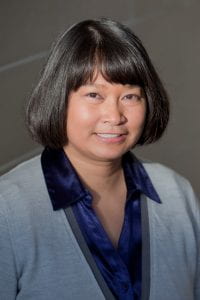Grad profile: Rachel Ines (Technical Communication, 2006)
 There are all manner of misconceptions surrounding the field of technical communication — chief among them, the one painting practitioners as fussy grammar nerds toiling away on text-heavy instruction manuals and other technical documents.
There are all manner of misconceptions surrounding the field of technical communication — chief among them, the one painting practitioners as fussy grammar nerds toiling away on text-heavy instruction manuals and other technical documents.
But even more annoying to Red River College grad Rachel Ines (Technical Communication, 2006) is the stereotype that equates the field’s “plain language” approach with a reduction in intellectual content.
“Writing in plain language doesn’t mean dumbing it down,” says Ines, currently the Communications Coordinator for the University of Manitoba’s Centre on Aging. “It simply means understanding how to adapt your writing for your audience. If you’re writing for an academic audience, you’re using terminology they’ll understand. And if you’re writing for the general public, it’s the same thing. But it’s definitely not dumbing things down.”
A longtime Winnipeg resident, Ines graduated high school with dual passions, having excelled in both English and history classes. After spending a year in B.C., she returned home to earn a degree in Anthropology from the University of Winnipeg — which in turn led to positions with Parks Canada and several local museums, as well as a six-month internship in New Zealand.
But Ines wasn’t completely sold on the idea of pursuing additional degrees in Anthropology, so instead turned her attention to a career in writing. At first, she considered training to become a journalist, but later focused on technical communication — a field that allowed her to further explore her love of writing, and to debunk yet another of those pesky misconceptions.
“A lot of people think technical communication is boring — that you just write instruction manuals all day,” she laughs.
“I had that preconception, too. When I was first told about the program, I thought, ‘I don’t want to write instruction manuals for the rest of my life!’ But when I saw what the program had to offer, I realized it’s much more than that — it’s an entire skill set.”
A lifelong lover of language (and admittedly, a bit of a Word nerd), Ines says she enjoyed learning how to become a clearer, more concise writer, and how to use common software applications to maximize functionality in both physical and digital documents. The program also equipped her with the ability to identify the various audiences she’d be writing for, and how to tailor her writing to suit those audiences’ individual needs.
Most importantly, Ines says the College left her better prepared to find and secure meaningful employment after graduation.
“I struggled when I got out of university because I didn’t know where to go — I only had theoretical training,” she explains. “Whereas with Red River College, the core program instructors were involved with the Manitoba chapter of the Society for Technical Communications, so there was a lot of opportunity to network with other practitioners. And of course, there’s much more diversity as far as the courses you take — everything you learn is very practical and you can apply it anywhere.”
Ironically, Ines’s career path led her right back to university: Her first post-RRC job was with a grant funded research project at the University of Manitoba, where she worked for two years as a communications specialist tasked with overseeing branding strategies, developing the web materials, designing newsletters and PowerPoint presentations, and assisting faculty with academic posters.
 Beginning in August 2009, she moved to the Centre on Aging, where she’s served as project coordinator on a five-year research initiative exploring age-friendly communities in Manitoba. In 2010 she became the Centre’s communication coordinator, where she is one of the coordinators for the Centre’s annual research symposium. She also designs and assists with the development of communication materials such as the Centre’s newsletter, reports and factsheets such as “The Baby Boomers: A profile of Manitoba’s new generation of seniors,” a wide-ranging resource based on 2006 census information and other related statistical information.
Beginning in August 2009, she moved to the Centre on Aging, where she’s served as project coordinator on a five-year research initiative exploring age-friendly communities in Manitoba. In 2010 she became the Centre’s communication coordinator, where she is one of the coordinators for the Centre’s annual research symposium. She also designs and assists with the development of communication materials such as the Centre’s newsletter, reports and factsheets such as “The Baby Boomers: A profile of Manitoba’s new generation of seniors,” a wide-ranging resource based on 2006 census information and other related statistical information.
Ines (shown at right with RRC co-op student Wyeth Krauchi) has also helped to overhaul the Centre’s website, and has managed to spread her enthusiasm for form and functionality to her co-workers.
“They say, ‘You’ve changed the way we look at documents, and changed the way we think about our standards,'” she says. “When you look at something that I’ve designed, and compare it to something they had before, there’s a big difference — not because it looks pretty, but because it’s far more functional.”
And even though she’s still relatively new to the field, Ines is already imparting her considerable expertise to the next wave of practitioners, where she worked two years as a part-time instructor with RRC’s Technical Communication diploma program.
“I don’t think I could just write manuals all day,” says Ines. “What I love about my job is that it’s really diverse. One day I could be working on interviews for a research project, one day I could be designing documents, and the next day I’m coordinating events.”
“It’s the whole communications piece — understanding how to write well, so that audiences can understand what they’re reading.”
Click here for more information on Red River College’s Technical Communication program.
